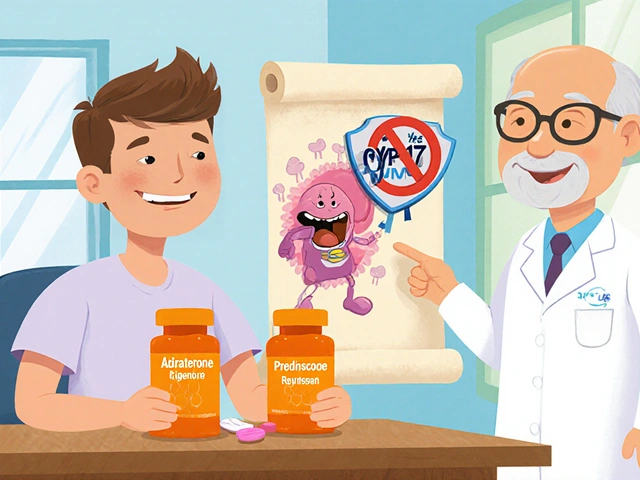Autoimmune diseases: practical help for treatments, meds and daily care
Autoimmune conditions can feel overwhelming. You get used to appointments, medication questions, and figuring out what’s safe to try. This page pulls together clear, practical advice about common treatments, options when a drug isn’t working, and smart safety steps when buying or switching medications.
Common treatments and what to expect
Most autoimmune care uses immune-modifying drugs. That includes older options like hydroxychloroquine and newer biologics that target specific immune pathways. If a drug causes bad side effects or stops working, there are real alternatives. For example, recent coverage on our site looks at alternatives to hydroxychloroquine and drugs like Saphnelo (anifrolumab) for lupus — how they work, pros and cons, and which patients might benefit.
Expect regular monitoring: blood tests, liver checks, and screening for infections before starting many medicines. Keep a simple list of your meds and lab results. Bring it to every appointment so your specialist can spot problems early. If a medication raises concerns about weight, blood sugar, or heart effects, your doctor may suggest an alternative or add protective measures.
Managing flares, interactions and medication safety
Flares happen. Recognize early signs: sudden fatigue, new joint pain, fever, or skin changes. Small steps help: track symptoms in a notebook or app, keep an emergency plan with your rheumatologist’s contact, and don’t change doses on your own. If you’re prescribed steroids for short-term control, ask about taper plans to avoid rebound flares.
Drug interactions matter. Before adding any new medicine — even OTC supplements — check interactions with your current autoimmune drugs. Our guides include interaction basics for common meds and tips on what to avoid. If you order meds online, read our pharmacy reviews and safety tips to spot legit pharmacies and avoid counterfeits. We also explain customs rules if you’re thinking of importing medication into the USA, so you don’t risk seizures at the border or losing your supply.
Vaccines and infection risk: many immune-suppressing drugs raise infection risk and alter vaccine timing. Live vaccines are often avoided when on strong immunosuppressants. Talk to your provider about flu, COVID-19, and shingles shots — timing and type can make a big difference in protection.
Lifestyle habits matter too. Sleep, gentle exercise, stress control, and a balanced diet lower flare risk and improve recovery. Small changes like consistent sleep or a short daily walk can cut fatigue and help medications work better.
Want specific reading? Check our article on hydroxychloroquine alternatives for lupus, plus reviews about biosimilars and how to buy specialty meds safely online. Bookmark this page and use it as a quick reference when you need straightforward, practical next steps for living with an autoimmune disease.
26
Anemia and Autoimmune Diseases: The Impact of Nutritional Deficiencies on Immune Function
In my latest blog post, I've explored the connection between anemia, autoimmune diseases, and nutritional deficiencies. It's startling to realize how these deficiencies can actually impact our immune system's function. I've delved into how inadequate nutrition can lead to anemia and trigger autoimmune responses in the body. It's a must-read for anyone dealing with these health concerns or who wants to better understand the vital role nutrition plays in our overall health. So, come join me on this enlightening journey and let's take control of our health together.
Latest Posts
Popular Posts
-
 Extended Use Dates: How the FDA Extends Drug Expiration Dates During Shortages
Extended Use Dates: How the FDA Extends Drug Expiration Dates During Shortages
-
 Enteral Feeding Tube Medication Safety: Compatibility and Flushing Protocols Explained
Enteral Feeding Tube Medication Safety: Compatibility and Flushing Protocols Explained
-
 Stinging Insect Allergy: What Venom Immunotherapy Really Does for You
Stinging Insect Allergy: What Venom Immunotherapy Really Does for You
-
 OTC Heartburn Medications: Antacids, H2 Blockers & PPIs Explained
OTC Heartburn Medications: Antacids, H2 Blockers & PPIs Explained
-
 Magnesium Supplements and Osteoporosis Medications: What You Need to Know About Timing
Magnesium Supplements and Osteoporosis Medications: What You Need to Know About Timing



